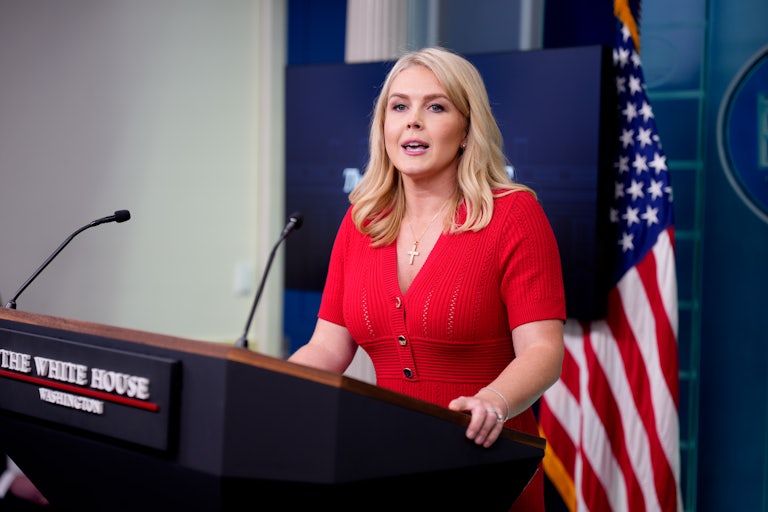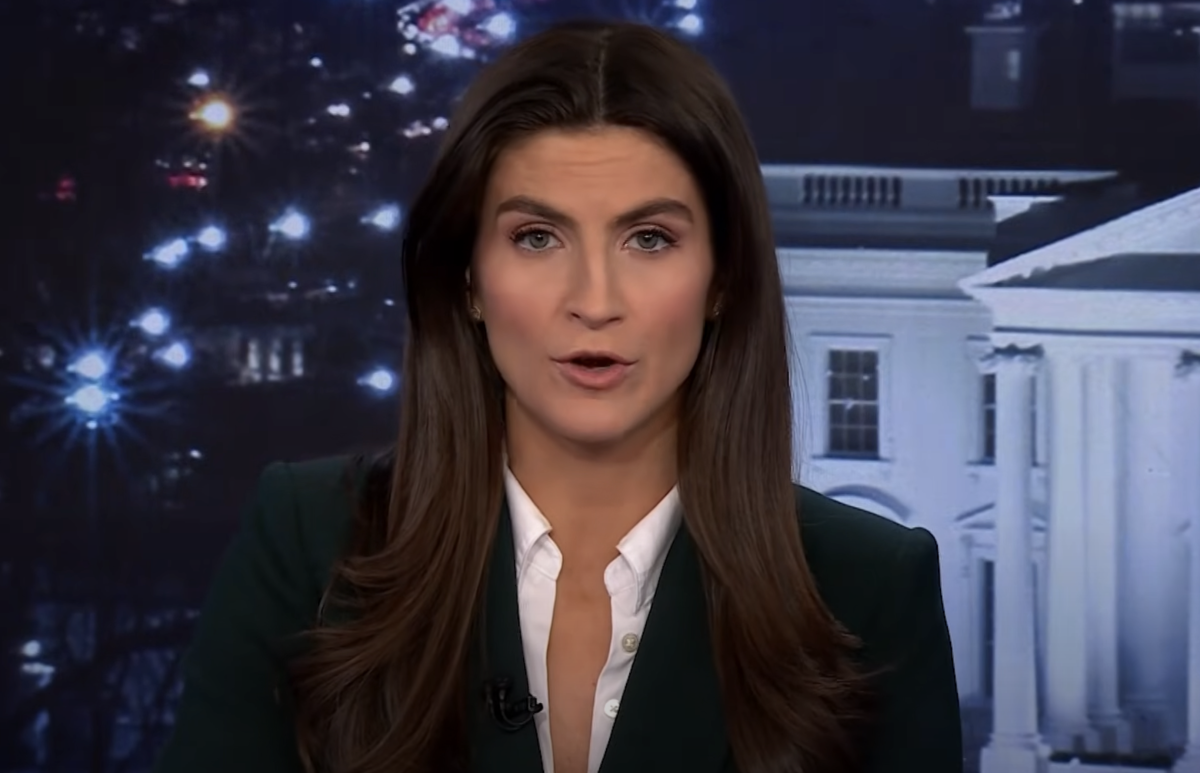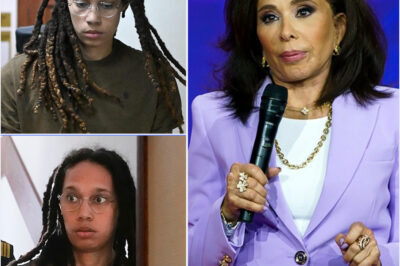“I’m Not Taking Your Follow-Up” — Karoline Leavitt Cracks Under Pressure as Kaitlan Collins Corners Her on Encrypted Messaging Scandal

The walls of the White House press room have seen countless clashes, but what happened this week between CNN’s Kaitlan Collins and Press Secretary Karoline Leavitt was more than a clash—it was a revealing moment that laid bare the Trump administration’s attitude toward transparency, accountability, and the very concept of answering to the American people.
At the center of it all: a disturbing report from The Atlantic suggesting that top White House officials used the encrypted app Signal to coordinate communications surrounding a sensitive military operation in Yemen. The kicker? A journalist was accidentally included in the group chat, exposing not just a lapse in judgment, but an apparent disregard for national security norms.
The Question That Karoline Leavitt Didn’t Want to Answer

The confrontation began when Collins, CNN’s chief White House correspondent, asked the question that’s been looming since The Atlantic broke the story:
“Does President Trump feel misled by his national security team after Signal messages about Yemen were mistakenly exposed?”
Leavitt, visibly tense, had answered a version of this question earlier in the briefing. But this time, her irritation flared.
“I’ve now been asked and answered this question three times,” she snapped. “The president feels the same today as he did yesterday.”
When Collins tried to follow up, as any seasoned journalist would, Leavitt cut her off with a chilling precision:
“Kaitlan, I’m not taking your follow-up.”
She then pivoted to another reporter, ignoring Collins’ attempt to continue.
Kaitlan Collins Stands Her Ground—While Leavitt Walks Away From Accountability

The moment, brief as it was, immediately ricocheted across social media. The tone. The dismissal. The complete refusal to engage with a direct, legitimate question.
And that’s what made it all the more disturbing.
Collins wasn’t shouting. She wasn’t editorializing. She was doing what White House correspondents are paid—and expected—to do: ask uncomfortable questions in pursuit of public truth.
But in today’s Trump-era press room, even asking a fourth follow-up can be treated as an act of defiance.
Attacking the Reporter Instead of Answering the Question
Rather than clarifying the decision to use an encrypted app for military discussions, Leavitt lashed out—this time at The Atlantic and its editor-in-chief Jeffrey Goldberg, whose reporting triggered the controversy.
“Jeffrey Goldberg is an anti-Trump hater,” she claimed. “His wife worked for Hillary Clinton and donates to Democrats.”
In a moment that felt more like a campaign rally than a press briefing, Leavitt painted legitimate journalism as partisan sabotage. No effort was made to rebut the facts of the story—just to discredit the messenger.
“We are not going to be lectured about national security by a media outlet that downplayed the withdrawal from Afghanistan,” she added, doubling down.
It was a classic move from the Trump playbook: when cornered by facts, attack the questioner.
The Bigger Question: What Was on Signal—and Why Was a Journalist There?
According to The Atlantic, the use of the Signal app—favored for its end-to-end encryption and disappearing messages—coincided with high-level discussions about military actions in Yemen. While the administration insists no classified information was shared, the implications are chilling.
If senior officials are discussing armed conflict on private apps, away from official documentation and oversight, what else is happening off the books?
And when a journalist was accidentally added to the chat, what did that reveal about the chaos and lack of professionalism inside this administration?
None of those questions were answered. Because when Kaitlan Collins tried to ask, Karoline Leavitt shut the door.
A Press Secretary Under Pressure
As the briefing wore on, Leavitt’s tone became increasingly clipped.
“I’ve now been asked and answered the same question using different language multiple times,” she said tersely.
She then tried to redirect the conversation, previewing Trump’s upcoming tariff announcements—an obvious attempt to bury a story that was growing louder by the minute.
Moments later, she abruptly ended the briefing, citing a scheduling conflict with the Vice President’s speech at Quantico.
“I would hate to counter-program the Vice President of the United States,” she said, forcing a smile as she stepped off the podium.
But the tension in the room lingered long after she left.
The Fallout: Praise from the Right, Concern from Everyone Else
Conservative pundits immediately praised Leavitt’s stonewalling as “strong,” “disciplined,” and “a masterclass in message control.” The phrase “I’m not taking your follow-up” trended for hours—applauded in MAGA corners of social media as a flex of power.
But outside that bubble, the reaction was starkly different.
“This wasn’t strength. It was evasion,” one former National Security Council staffer wrote. “Refusing to answer a question about encrypted communications and foreign military operations isn’t confidence—it’s panic.”
Journalists across networks, including those at CNN, rallied behind Collins. Privately, one senior correspondent told Politico, “That’s not how any functioning White House should behave. And they know it.”
What It Means for the Second Trump Term
If this press briefing is any indication of how the Trump administration will handle media scrutiny in its second term, it’s clear the strategy is simple: deny, deflect, and attack.
Leavitt, barely six months into the job, has already adopted the full armor of Trumpian communication—rejecting hard questions, vilifying reporters, and invoking political enemies to distract from accountability.
But for all the bluster, one fact remains:
A journalist was added to a military group chat.
No one has explained how.
And the White House refuses to answer questions about it.
Final Thought: Seven Words That Say Too Much
“I’m not taking your follow-up.”
It was just a phrase. But in that moment, it became a headline.
It was the clearest signal yet that this White House is no longer interested in being questioned—only obeyed. And for those who still believe in press freedom and democratic transparency, it was a moment of chilling clarity.
Because in 2025, it seems even asking questions might get you shut down.
News
Brittney Griner and WNBA Stars Just Sent Caitlin Clark a BRUTAL Message: “I Will Make Caitlin Quit”
The hardwood was supposed to echo only with sneakers and the roar of fans. Instead, what everyone remembers is a…
The Room Went Dead Silent: Jeanine Pirro’s Five Words About Brittney Griner That Shook Sports, Media, and the WNBA
The silence didn’t last long.But for the three seconds before the cameras cut, before the screen went to black, before…
Little Girl Leavitt, Don’t Dodge My Eyes! — Karoline Leavittt Publicly Mocked Colbert For Being Canceled. But His Counterpunch Left Her Completely Paralyzed… Live On Air! C3
She laughed too early. And the cameras caught it. Half a second. That’s all it took for the entire atmosphere…
Angel Reese Reportedly Furious After 2K Denies Her 99 Overall Rating – “They Play Because of Me Too. I Should Be the Best Player.”
In the world of sports gaming, few debates hit harder than player ratings. They’re not just numbers on a screen…
The House That Love Built: Caitlin Clark’s Parents Sold Their Home in Secret — and the Truth Behind Their Sacrifice Redefines Success
It began not with a buzzer-beater or a championship trophy, but with a simple piece of paper on a quiet…
“SHE THOUGHT IT WAS JUST ANOTHER PRESSER — UNTIL HE WALKED IN.” Michael Jordan Slides a $52 Million Envelope Across the Table, and Caitlin Clark Doesn’t Blink
The press conference wasn’t supposed to change the future of basketball. It was supposed to be routine. Another post-game presser…
End of content
No more pages to load












